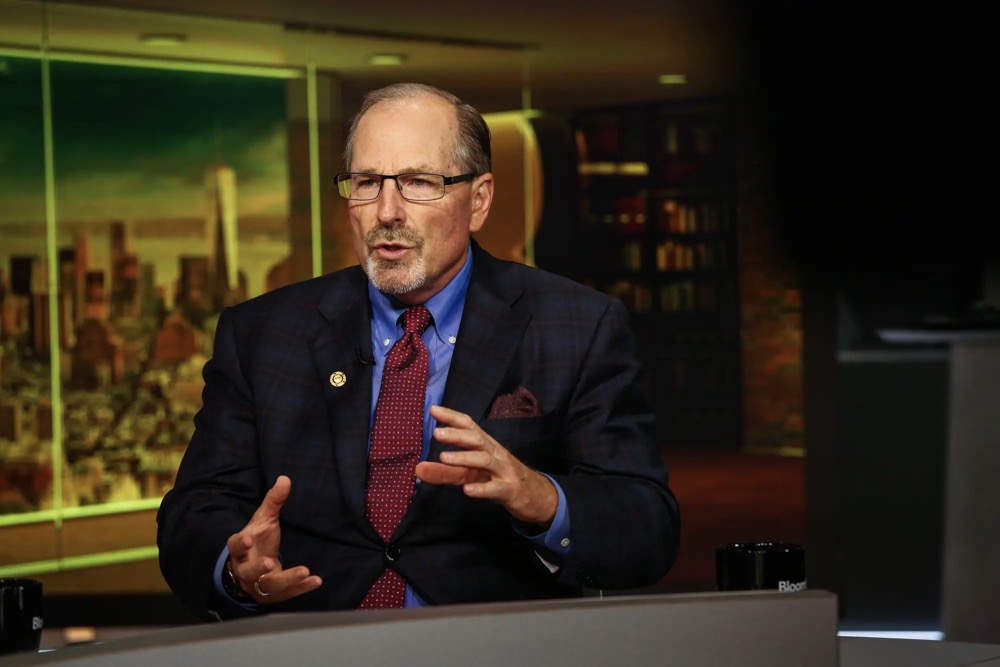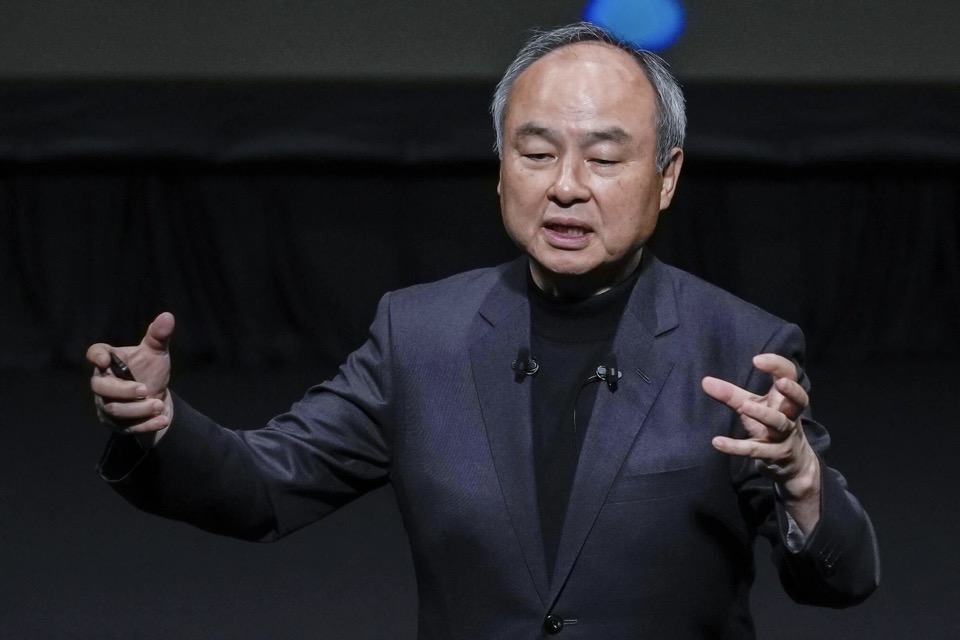Welcome to DU!
The truly grassroots left-of-center political community where regular people, not algorithms, drive the discussions and set the standards.
Join the community:
Create a free account
Support DU (and get rid of ads!):
Become a Star Member
Latest Breaking News
Editorials & Other Articles
General Discussion
The DU Lounge
All Forums
Issue Forums
Culture Forums
Alliance Forums
Region Forums
Support Forums
Help & Search
Economy
Related: About this forumDonald Trump's fortress economy is starting to hurt America (Economist)
https://archive.md/MOxxV#selection-1189.0-1189.59https://www.economist.com/leaders/2025/10/09/donald-trumps-fortress-economy-is-starting-to-hurt-america
The pain from trade and immigration restrictions cannot be postponed forever
Brick by brick, President Donald Trump is building a wall around the world’s largest economy. As America’s tariff barriers on everyone else have gone up, so has the drawbridge, making it harder for migrants to enter the country. The president wants to turn America into a fortress that keeps out foreign incursions. In fact, he is cutting America off from the very goods and talent that helped make its economy the envy of the world. Already the damage is starting to show; once wreaked, it will not easily be reversed.
That is not how investors see it. In the six months since “Liberation Day”, when Mr Trump slapped tariffs on America’s trading partners, financial markets have swung from panic to euphoria. Elsewhere the picture is mixed. Inflation has risen only a little, as America’s importing businesses have absorbed much of the tariff pain. Although employment has stagnated as migration flows have stopped, America’s economy will probably grow by 1.5-2% in 2025.
Some of the explanation for this resilience is that average tariffs are not as high as was feared, in part because of rollbacks and in part because trade flows are adapting fast. In April analysts were warning of America’s average tariff rate reaching 28%. By August, however, customs revenue raised at the border pointed to a rate of only 11%. It also helps that few countries other than China have retaliated at scale against American duties. Big economies including Britain, Japan and the European Union have struck deals that reduce Mr Trump’s proposed tariffs, without levying their own.
The president is fortunate, too, that America is in the middle of an astonishing stockmarket boom, fuelled by optimism about artificial intelligence (ai). Since a trough in April, the S&P 500 has risen by 40%; valuations now exceed 40 times cyclically adjusted earnings, not far off the record set during the dotcom years. Wealthier investors are in turn spending more and propping up growth.
That is not how investors see it. In the six months since “Liberation Day”, when Mr Trump slapped tariffs on America’s trading partners, financial markets have swung from panic to euphoria. Elsewhere the picture is mixed. Inflation has risen only a little, as America’s importing businesses have absorbed much of the tariff pain. Although employment has stagnated as migration flows have stopped, America’s economy will probably grow by 1.5-2% in 2025.
Some of the explanation for this resilience is that average tariffs are not as high as was feared, in part because of rollbacks and in part because trade flows are adapting fast. In April analysts were warning of America’s average tariff rate reaching 28%. By August, however, customs revenue raised at the border pointed to a rate of only 11%. It also helps that few countries other than China have retaliated at scale against American duties. Big economies including Britain, Japan and the European Union have struck deals that reduce Mr Trump’s proposed tariffs, without levying their own.
The president is fortunate, too, that America is in the middle of an astonishing stockmarket boom, fuelled by optimism about artificial intelligence (ai). Since a trough in April, the S&P 500 has risen by 40%; valuations now exceed 40 times cyclically adjusted earnings, not far off the record set during the dotcom years. Wealthier investors are in turn spending more and propping up growth.
Meanwhile at Business Insider:
People are chasing AI stocks like 'dogs chase cars' — and a crash looks certain, veteran investor Bill Smead says
https://www.businessinsider.com/ai-stocks-bubble-crash-smead-market-outlook-nvidia-openai-tech-2025-9?op=1
This is, from a fundamental standpoint, identical to all the past major manias," Smead said. "We're bumping up against history real hard now."
Smead said the problem isn't whether AI companies realize the technology's potential benefits, but that "whatever success they might have has already been massively overcapitalized."
He said that "when this thing breaks," people will only be willing to buy AI stocks at a fraction of their current price.
Oracle stock jumped 40% in a day earlier this month after it forecast rapid revenue growth in its cloud infrastructure business, which caters to AI companies such as OpenAI.
Smead said the problem isn't whether AI companies realize the technology's potential benefits, but that "whatever success they might have has already been massively overcapitalized."
He said that "when this thing breaks," people will only be willing to buy AI stocks at a fraction of their current price.
Oracle stock jumped 40% in a day earlier this month after it forecast rapid revenue growth in its cloud infrastructure business, which caters to AI companies such as OpenAI.
Smead holds AirBasketball to be used in the new Allen Iverson (AI) Basketball League.

Softbank leader Masayoshi Son holds an Air AIcordion, set to revolutionize music entirely.

Party like it's 1965
Look out
For the trader
Make way for the fool hearted clown
Look out
For the trader
He's gonna build you up
Just to let you down
2 replies
 = new reply since forum marked as read
Highlight:
NoneDon't highlight anything
5 newestHighlight 5 most recent replies
= new reply since forum marked as read
Highlight:
NoneDon't highlight anything
5 newestHighlight 5 most recent replies
Donald Trump's fortress economy is starting to hurt America (Economist) (Original Post)
usonian
Friday
OP
bucolic_frolic
(52,771 posts)1. Sure don't want to be caught in one of those market downdrafts
There are hedges on indexes and individual securities with short ETFs. I watch channels closely, and hedge the peaks here or there. Market segment sector rotation helps - emerging, global, international, mid-cap, value, etc.
Personally I think crypto is creating money supply and will make inflation worse. But what do I know? Not much.
progree
(12,424 posts)2. S&P 500 down 2.7% today on reignited China trade war, largest one day drop since April
https://finance.yahoo.com/news/live/stock-market-today-dow-sinks-800-points-sp-500-and-nasdaq-see-worst-day-since-april-as-trumps-renewed-tariff-threats-spook-wall-street-200026352.html
====================================
Consumer Sentiment report today, 10/10/25
https://www.sca.isr.umich.edu/

Source: https://www.sca.isr.umich.edu/files/chicsr.pdf
Stock market today: Dow sinks 800 points, S&P 500 and Nasdaq see worst day since April as Trump's renewed tariff threats spook Wall Street, Yahoo Finance, 10/10/25
US stocks closed sharply lower on Friday as President Trump and China traded blows on tariffs, with Trump threatening a "massive increase" in duties on Chinese goods. ((biggest one-day drop since April, according to other headlines out there -progree))
The Dow Jones Industrial Average (^DJI) lost 1.9%, or over 870 points, while the S&P 500 (^GSPC) fell roughly 2.7%. The tech-heavy Nasdaq Composite (^IXIC) slid around 3.6%, leading losses.
Trump unloaded on China and its leader, Xi Jinping, in a lengthy post on Truth Social on Friday. The post came after China heated up trade tensions with the US, adding new port fees on American ships and launching an antitrust investigation into Qualcomm (QCOM). Beijing has also been in the midst of tightening export controls on rare earth minerals, and it recently halted purchases of US soybeans.
"Some very strange things are happening in China!" Trump posted. In his post, he also floated canceling a planned meeting with Xi later this month, saying there was "no reason" for it before threatening to dramatically increase tariffs.
With Friday's decline, all major indexes logged a firmly down week after a retreat from record highs.
The world's largest cryptocurrency (Bitcoin, BTC-USD) declined below $118,000, losing as much as 3% during the sell-off.
Ether (ETH-USD) also sank 6%.
US stocks closed sharply lower on Friday as President Trump and China traded blows on tariffs, with Trump threatening a "massive increase" in duties on Chinese goods. ((biggest one-day drop since April, according to other headlines out there -progree))
The Dow Jones Industrial Average (^DJI) lost 1.9%, or over 870 points, while the S&P 500 (^GSPC) fell roughly 2.7%. The tech-heavy Nasdaq Composite (^IXIC) slid around 3.6%, leading losses.
Trump unloaded on China and its leader, Xi Jinping, in a lengthy post on Truth Social on Friday. The post came after China heated up trade tensions with the US, adding new port fees on American ships and launching an antitrust investigation into Qualcomm (QCOM). Beijing has also been in the midst of tightening export controls on rare earth minerals, and it recently halted purchases of US soybeans.
"Some very strange things are happening in China!" Trump posted. In his post, he also floated canceling a planned meeting with Xi later this month, saying there was "no reason" for it before threatening to dramatically increase tariffs.
With Friday's decline, all major indexes logged a firmly down week after a retreat from record highs.
The world's largest cryptocurrency (Bitcoin, BTC-USD) declined below $118,000, losing as much as 3% during the sell-off.
Ether (ETH-USD) also sank 6%.
====================================
Consumer Sentiment report today, 10/10/25
https://www.sca.isr.umich.edu/

Source: https://www.sca.isr.umich.edu/files/chicsr.pdf